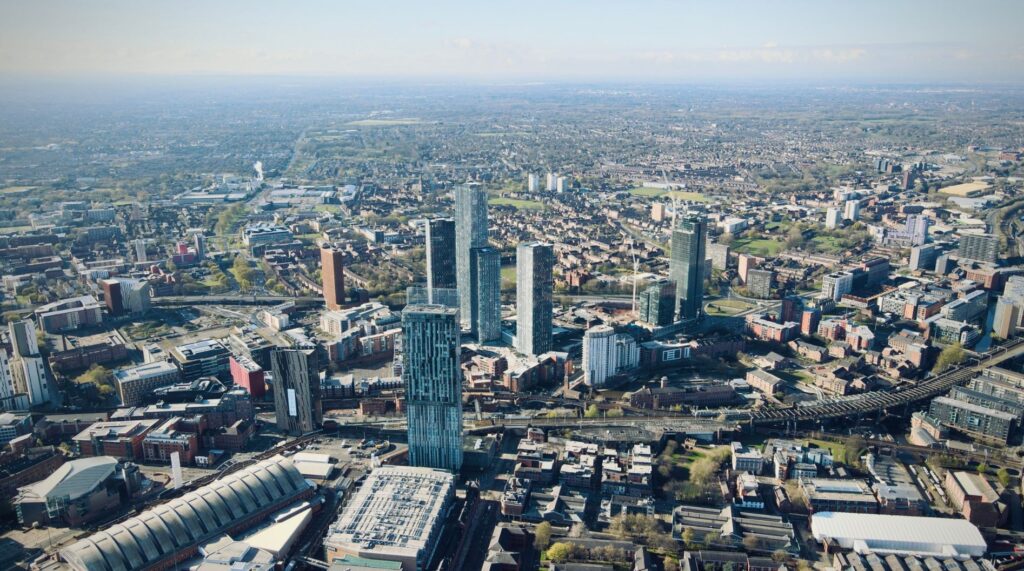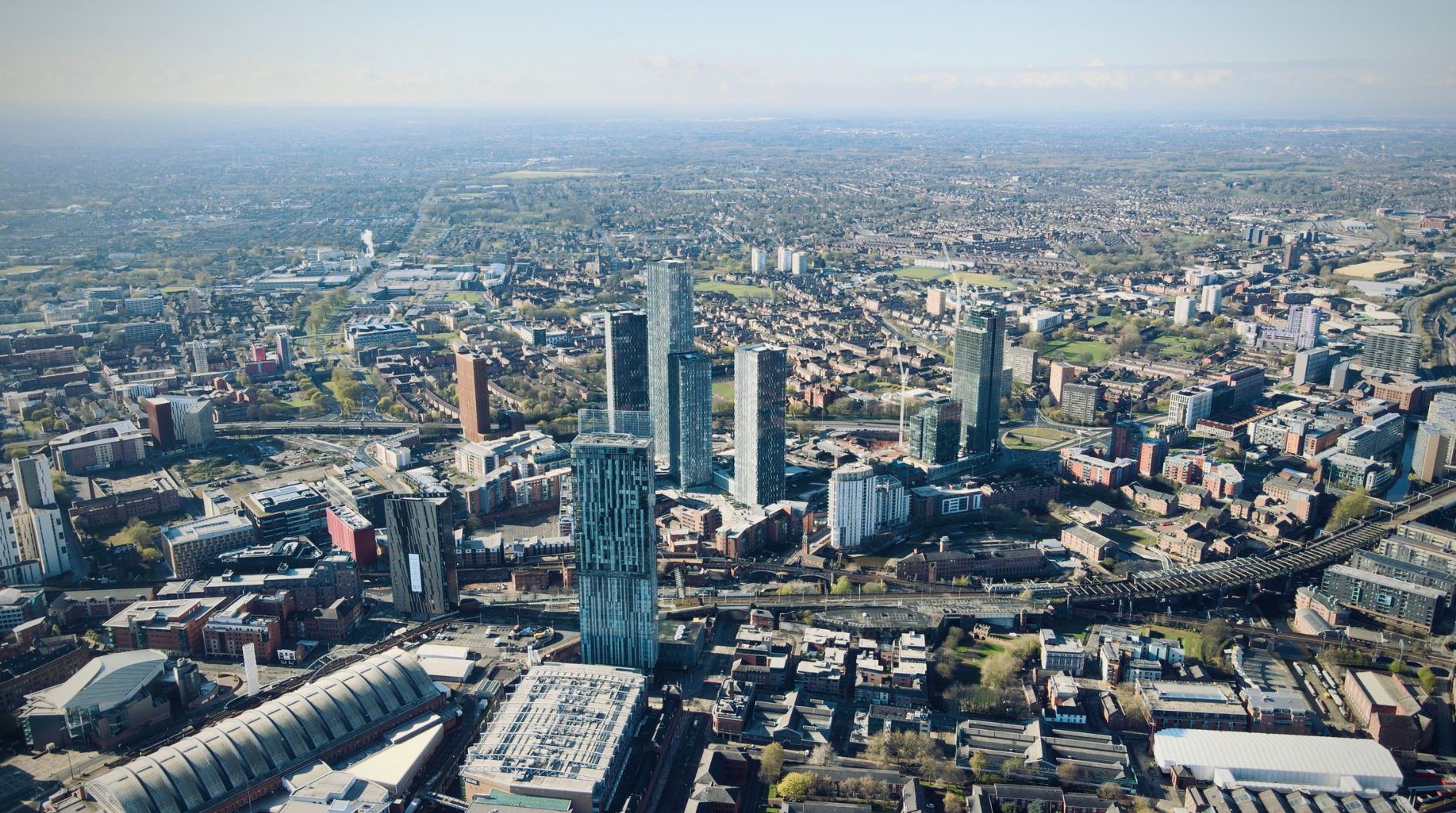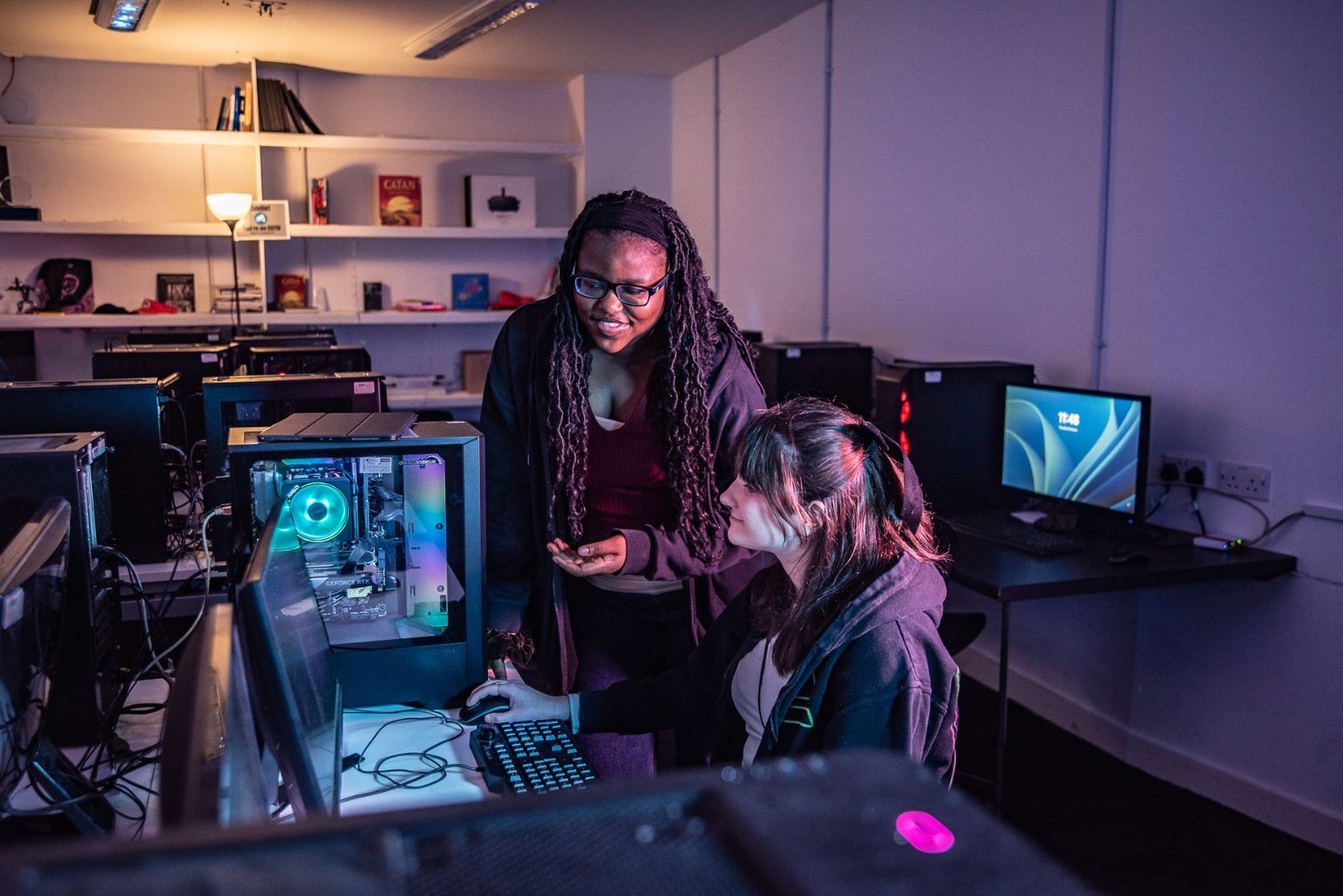The UK is an incredible place to be; with vibrancy and creativity spilling from all areas of Britain. But in this blog, we’re focusing on the North, a region renowned for a long and storied history of creative success, especially in music, sport and culture. In 31 years, the Premier League has been won 22 times by teams from the North West, 8 times by London teams and once by Leicester City. Originating from Liverpool, The Beatles are the most important band ever to have existed, and the biggest music scenes of the 80s and 90s emerged from Manchester.
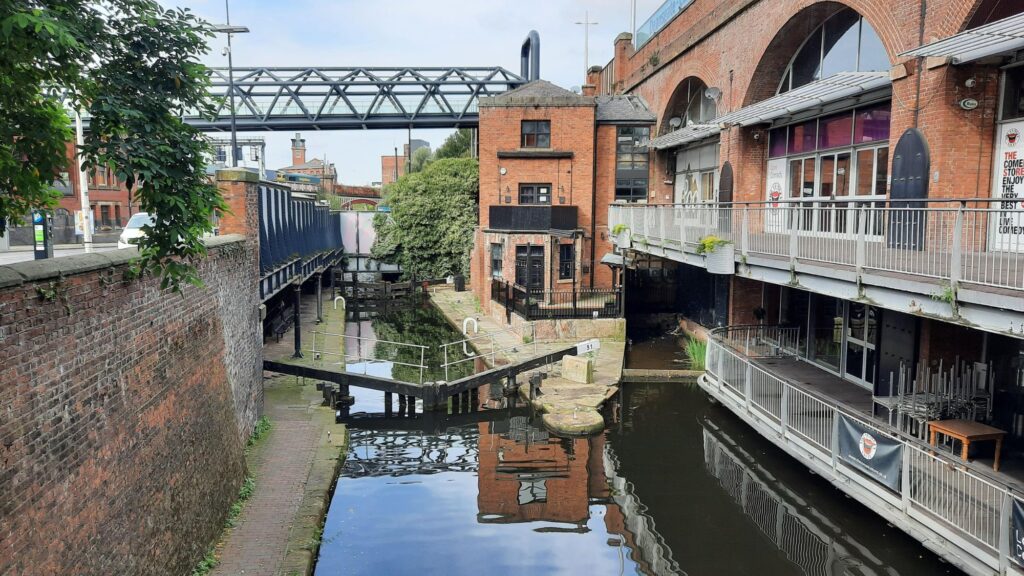
Battle of the Powerhouses
But which of these two northern powerhouses, Liverpool or Manchester, can truly claim to be the music capital of the North of England?
Both have built their local music scenes from the ground upwards, with working-class groups of friends coming together to create a sense of community. Manchester and Liverpool bands have always been supportive of their peers – and of each other. For example, Ian Broudie of Liverpool’s The Lightning Seeds talks fondly of working with Manchester bands in the early 1980s and how there was a sense of community between them.
Music from both cities demonstrates a reverence for the past and their traditions but also an urgent focus on the future and innovation. Both scenes have a sharp wit and sense of humour that underscores their lyrical prowess. Manchester’s is often darker and Liverpool’s more playful, but some influences transcend both cities. A former student of ours and now session musician, Chris Howard, moved to Liverpool a few years ago and noticed one particular difference. “When I used to tell people I was a musician in Manchester, they told me to get a real job. When I tell people I’m a musician in Liverpool, they think it’s great and want to know more.”
This Mancunian cynicism and sarcasm is perhaps typical of the difference between the two cities. Liverpudlians tend to wear their hearts on their sleeves. Mancunians tend to be more droll. Liverpool is Spongebob, Manchester is Squidward. This can be seen in the lyrics of 10cc in songs like, “I’m Not in Love” and “Good Morning Judge”, The Smiths (“Heaven Knows I’m Miserable Now”) and the Stone Roses (“I am the Resurrection”).
Madchester or Merseybeat?
So, why do I think Manchester pips Liverpool as the Music Capital of the North? Firstly, some disclosures: I’m from Manchester, I am biassed. I also love Liverpool. I love Liverpool’s music and it may be my favourite city to perform.
Liverpool has been home to some of the finest bands and performers in the world. The Beatles come first but there have been lots of other greats, like The La’s, Cast, Teardrop Explodes, Frankie Goes to Hollywood and Gerry and the Pacemakers. There are some great current bands too – She Drew the Gun and The Mysterines spring to mind.
Manchester may have played second fiddle to Liverpool in the 1960s. Wayne Fontana and the Mindbenders and Freddie and the Dreamers didn’t quite live up to the Beatles and Gerry, however, the Hollies and Herman’s Hermits had fairly huge success during this decade.
Since then, Manchester has been at the forefront of music innovation. 10cc developed new recording techniques and technologies like the Gizmotron. Punk started to gain notoriety out of London when the Sex Pistols played Manchester’s Lesser Free Trade Hall on 4th June in 1976. This, in turn, gave rise to some of the finest, most influential post-punk and new wave music with bands like Joy Division who, following the tragic death of singer Ian Curtis, morphed into the equally influential New Order.
The legacy of New Order’s label boss, Tony Wilson, can’t be ignored here. As head of Factory Records and co-owner of the Hacienda nightclub, Wilson spearheaded the dance indie and dance music revolutions almost at the same time.
Bands like Happy Mondays and Stone Roses set the tone for the early 90s by combining the swagger of rock bands with the funkiness of house music, and they were followed by the likes of Oasis and then acts like Doves and elbow in the 2000s.
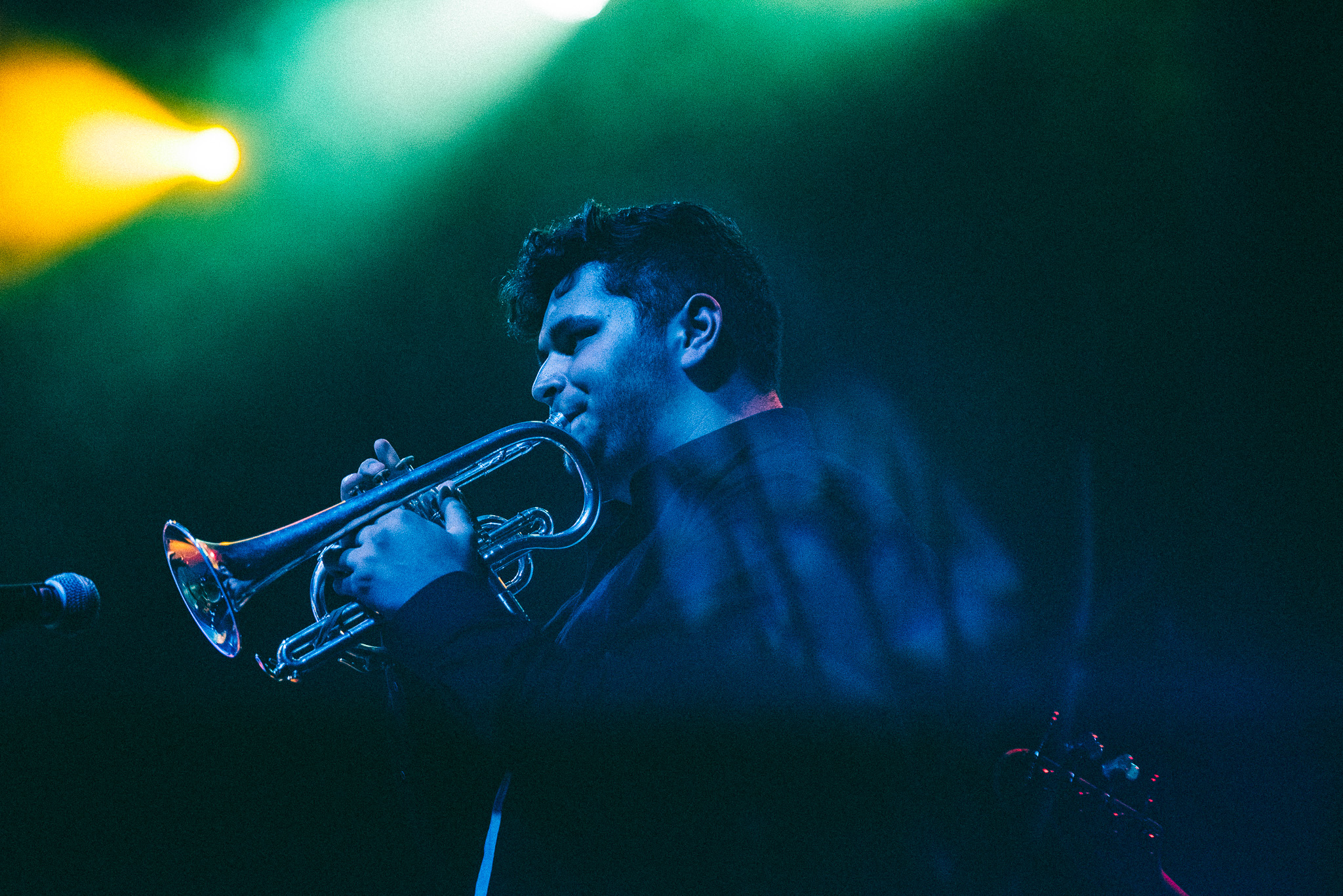
Sound of the Underground
Alongside the mainstream, Manchester has produced a healthy stream of influential underground acts such as Aitch and Burgaboy and we’ve had a fair amount of success with people who’ve passed through Access Creative College in Manchester. Some, including Barry Johnson from Sweet Sensation, who had a number one hit with ‘Sad Sweet Dreamer’ and Leanne Brown from Sweet Female Attitude, who had an iconic number 2 hit with ‘Flowers’ joined Access after their success and helped to spread their wisdom to our students. Others, including IAMDDB, JP Cooper and Liam Frost came through the ranks as students in Manchester and have developed successful careers as artists in the music industry. Alongside them, we have produced finalists in all of the major UK TV talent shows, including Misha B (X Factor finalist with 4 hit singles, including two top 10s), Mo Jamil Adeniran (The Voice winner, top 40 album), Kris Evans (BGT finalist with The Mend), Pepper & Piano (Must Be the Music Finalist, top 10 single with ‘You Took My Heart’).
With the constant stream of talent that continues to emanate from this great and diverse city, can there really be any argument about Manchester being the music capital of The North?
If you want to join decades of incredible Manchester musicians who made their mark on the music industry, why not visit us and see what we have to offer? Book your place on our next Manchester open day.


